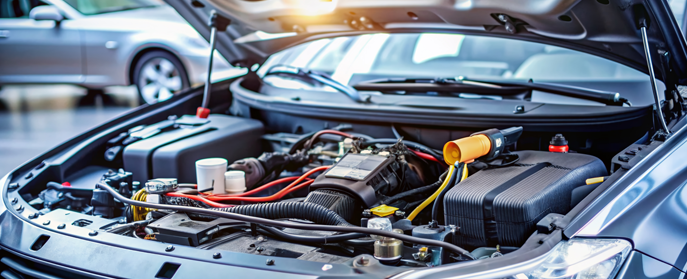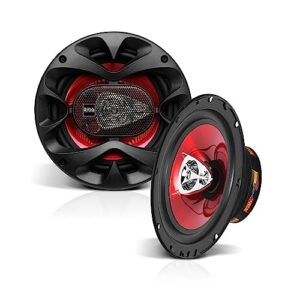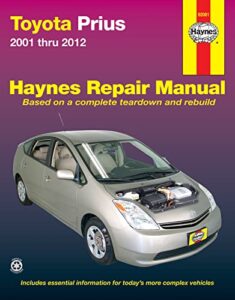As an Amazon Associate, I earn from qualifying purchases
You’re sitting in your Toyota Camry, ready to go, but when you turn the key, nothing happens—even though the power seems to be on. It’s frustrating and confusing.
Why won’t your car start if it has power? You’re not alone, and the good news is that this problem often has simple explanations and fixes. You’ll discover the most common reasons why your Toyota Camry won’t start despite having power—and what you can do to get back on the road quickly.
Keep reading to find the answers you need.
Common Causes Of Starting Issues
When a Toyota Camry won’t start but still has power, it can confuse many drivers. The engine does not turn over even though the dashboard lights come on. Several common issues could cause this problem. Understanding these causes helps you find a solution faster.
Battery And Electrical Problems
The battery might have enough power for lights but not enough to start the engine. Corroded battery terminals or loose connections can stop the starter from working. Sometimes, a failing alternator causes the battery to drain. Electrical faults in wiring or fuses can also block the starting process.
Fuel System Failures
The engine needs fuel to start and run. A clogged fuel filter can stop fuel flow to the engine. The fuel pump might fail and not deliver fuel properly. Dirty or bad fuel can cause the engine to crank but not fire up. Issues with fuel injectors can also cause starting problems.
Ignition System Malfunctions
The ignition system creates the spark that starts the engine. Faulty spark plugs can stop the engine from firing. Problems with the ignition coil or ignition switch can prevent the spark from reaching the engine. A bad crankshaft or camshaft position sensor can also stop the engine from starting.
Starter Motor Issues
The starter motor turns the engine to start it. A worn-out starter motor may fail to engage. Faulty starter solenoids can prevent the motor from working. Sometimes the starter gear does not connect with the engine flywheel properly. These issues cause the engine to stay still even with power.

Credit: www.wikihow.com
Diagnosing The Problem
Diagnosing the problem when a Toyota Camry won’t start but has power requires a step-by-step check. Each part plays a role in starting the engine. Identifying the faulty component saves time and money. Follow these simple checks to find the issue.
Checking Battery Health
The battery supplies power to start the engine. A battery can have enough power for lights but not enough to start. Use a multimeter to check voltage. It should read around 12.6 volts when the car is off. Below 12 volts means the battery is weak. Clean the battery terminals to ensure good contact. A bad battery often causes starting problems.
Testing The Fuel Pump
The fuel pump sends gas to the engine. A faulty pump means no fuel reaches the engine. Listen for a humming sound from the fuel tank when turning the key. No sound may indicate a bad fuel pump. You can also check fuel pressure with a gauge. Low pressure means the pump is failing. Fuel issues stop the engine from starting even with power.
Inspecting Spark Plugs And Wires
Spark plugs ignite the fuel-air mix in cylinders. Worn or damaged plugs stop the engine from starting. Remove plugs and check for wear or soot. Replace if dirty or cracked. Check spark plug wires for cracks or loose connections. Bad wires cause weak or no spark. Good spark plugs and wires are essential for starting.
Evaluating Starter Motor Function
The starter motor turns the engine to start it. A faulty starter can cause clicking sounds or no response. Check for loose or corroded wiring at the starter. Tap the starter lightly with a tool and try starting again. If it starts, the starter may be failing. A bad starter motor stops the engine from turning over.
Quick Fixes To Try
When your Toyota Camry won’t start but still has power, quick fixes can help you get back on the road. These simple steps often solve common issues without calling a mechanic. Try these easy tips before seeking professional help.
Jump-starting The Battery
A weak battery may cause starting problems despite power. Use jumper cables and another car’s battery to jump-start your Camry. Connect cables carefully: positive to positive, negative to negative. Let the battery charge for a few minutes. Try starting the car again.
Cleaning Battery Terminals
Dirty or corroded battery terminals can stop the car from starting. Turn off the engine and disconnect the battery cables. Use a wire brush or baking soda mix to clean the terminals. Reconnect cables firmly. This can improve the connection and help the car start.
Tapping The Starter Motor
The starter motor might be stuck or faulty. Gently tap it with a small hammer or wrench. This sometimes frees the motor and allows it to work. Try starting the car after tapping. Be careful not to hit too hard.
Adding Fuel System Cleaner
Fuel problems can stop the engine from starting. Add a fuel system cleaner to your gas tank. This helps clear fuel injectors and improves fuel flow. Use the cleaner as directed on the bottle. It may fix minor fuel issues and help start your Camry.

Credit: us.haynes.com
When To Seek Professional Help
Knowing when to seek professional help is important for your Toyota Camry. Some problems need expert tools and skills. Trying to fix complex issues alone can cause more damage. A trained mechanic can diagnose and repair your car safely and quickly.
Persistent Electrical Issues
Electrical problems can be tricky. If your Camry has power but won’t start, the battery or wiring might be faulty. Persistent electrical faults need a professional. They use special equipment to find hidden issues. Fixing these requires knowledge of your car’s electrical system.
Fuel Delivery Failures
Your engine needs fuel to start and run. Problems with the fuel pump or filter can block fuel flow. A professional can test fuel pressure and check parts. They replace faulty components to restore proper fuel delivery. Avoid trying to fix fuel issues without experience.
Complex Ignition Problems
The ignition system controls the engine start. Issues with ignition coils, spark plugs, or sensors can stop your car from starting. Diagnosing these parts needs skill and tools. Mechanics can pinpoint the exact cause quickly. They ensure your ignition system works right again.
Starter Replacement Needs
The starter motor turns the engine over to start. If it fails, your Camry won’t start despite having power. Replacing a starter requires mechanical knowledge and tools. Professionals remove and install the starter correctly. They test the new starter to confirm it works well.
Preventive Maintenance Tips
Preventive maintenance keeps your Toyota Camry running smoothly. It helps avoid sudden start problems. Small checks can save big repair costs. Regular care ensures your car stays reliable. Focus on key parts that affect starting.
Regular Battery Checks
Check the battery terminals for corrosion. Clean any buildup with a brush. Test the battery voltage regularly. Replace the battery if it is weak. A good battery provides steady power to start the car.
Fuel System Care
Use quality fuel to keep the system clean. Replace the fuel filter as recommended. Inspect fuel lines for leaks or damage. A clean fuel system ensures proper fuel flow. This helps the engine start easily every time.
Ignition System Maintenance
Inspect spark plugs and wires for wear. Replace spark plugs based on the schedule. Check the ignition coil for faults. Good ignition parts create strong sparks. This makes starting the engine easier and smoother.
Starter Motor Upkeep
Listen for unusual sounds when starting. Test the starter motor regularly. Clean connections to prevent power loss. Replace the starter if it shows signs of failure. A healthy starter motor is key to reliable starts.

Credit: www.youtube.com
Frequently Asked Questions
Why Does My Toyota Camry Have Power But Won’t Start?
The engine may not crank due to a bad starter, ignition switch, or security system issue.
Can A Weak Battery Cause Starting Problems With Power On?
Yes, a weak battery can power lights but not start the engine properly.
Could A Faulty Starter Motor Cause Toyota Camry No-start?
Yes, a bad starter motor can prevent the engine from turning over despite power.
How Does The Immobilizer Affect Toyota Camry Starting Issues?
The immobilizer may block starting if the key or system is faulty or not recognized.
Can Fuel System Problems Cause No-start While Having Power?
Yes, lack of fuel delivery or a bad fuel pump can stop the engine from starting.
Is A Blown Fuse A Reason For Power But No Start?
Yes, a blown fuse in the starting circuit can cause power but prevent engine start.
Conclusion
A Toyota Camry that has power but won’t start needs quick attention. Check the battery, starter, and fuel system first. Small issues can stop your car from starting. Fixing these problems can save time and money. Stay calm and follow simple steps to find the cause.
Regular maintenance helps avoid surprises on the road. Keep your Camry ready to drive with basic care. Don’t ignore signs that your car might have trouble starting. Taking action early keeps you safe and your car working well.
As an Amazon Associate, I earn from qualifying purchases


